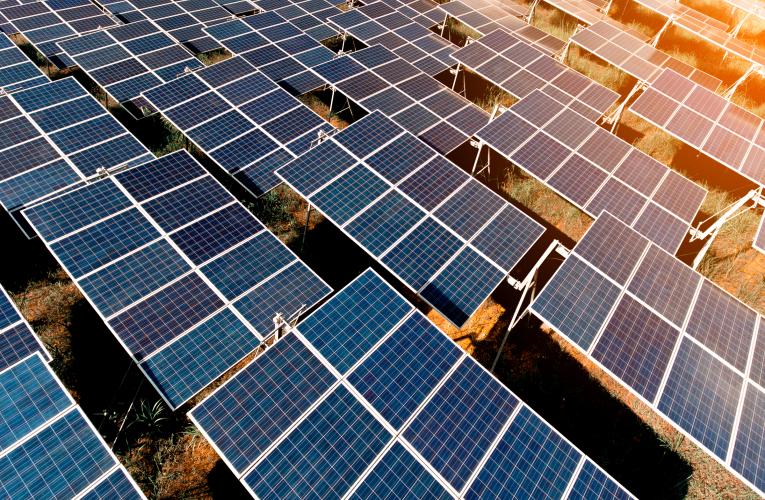Certificate Focus
The Certificate in Energy & Environment is designed to give students a greater understanding of the breadth of issues that confront our society in its need for clean, affordable and reliable energy. A major focus is helping students become innovative thinkers and leaders who understand the energy system as a whole and how it is shaped by complex interconnections between policy, markets, technology and the environment.
Your Future
This certificate is highly recommended for undergraduate students planning careers in the energy sector; the physical or natural sciences; environmental policy, management, law or economics; and related career tracks in the private, nonprofit, government and academic sectors.
Courses
Energy use is a multifaceted problem, which draws upon the perspectives and expertise of a variety of disciplines. The Certificate in Energy and the Environment is therefore similarly interdisciplinary. A total of six courses is required for the certificate.
Core Course – Required
- ENVIRON/ENERGY 231: Energy and the Environment (offered every fall)
Elective: Markets & Policy – Choose One
- CEE 315/ENVIRON 365/PUBPOL 211. Engineering Sustainable Design and the Global Community (environmental section; fall)
- ENERGY/ENVIRON 578. ESG Investing (fall)
- ENERGY/ENVIRON 588. Intro to Solar Project Development (fall/spring)
- ENERGY 620. Energy Finance (spring)
- ENVIRON 155. Economics & Environment (fall)
- ENVIRON 201. Integrating Environmental Science & Policy (fall/spring)
- ENVIRON 212/PUBPOL 275/RIGHTS 213. U.S. Environmental Policy (spring)
- ENVIRON 216S. Environment and Conflict (fall)
- ENVIRON 577. Global Environmental Politics (spring)
- ENVIRON/ENERGY 590.05. Economics of Modern Power Systems (fall)
- FECON 390. Intro to Global Carbon Trading (fall)
Half-Courses
The following half-courses, any two of which may be combined to fulfill this elective requirement:
- ENERGY/I&E 579. Climate Tech Startups & Investors (spring)
- ENVIRON 520. Resource and Environmental Economics I (fall)
- ENVIRON 521. Resource and Environmental Economics II (fall)
- ENVIRON/ENERGY 635. Energy Economics and Policy (fall)
Elective: Environment – Choose One
- CEE 132L. Engineering the Planet (spring)
- CEE 461L. Environmental Aquatic Chemistry (fall)
- CEE 462L. Applied Biological Principles in Environmental Engineering (spring)
- CEE 463L. Water Resources Engineering (fall)
- CEE 506. Environmental Spatial Data Analysis (fall)
- ECE 365/ENVIRON 454. Rainforest Engineering (fall)
- ECS 103. Climate Change (fall/spring)
- ECS 202. Atmosphere and Ocean Dynamics (fall)
- ECS 511. The Climate System (fall)
- ECS/ENVIRON/ENERGY 524. Water Quality and Health (spring)
- ENVIRON 102. Intro to Environmental Sciences and Policy (fall/spring)
- ENVIRON/SUSTAIN 245. The Theory and Practice of Sustainability (spring)
Elective: Energy Science & Technology – Choose One
In selecting the elective course in Energy Science and Technology, it is important to consider which course will provide optimal preparation for the student's Capstone project course. Students should discuss their selection of this elective with a co-director of the program.
- ECE 341L. Solar Cells (every other spring)
- ECE 431. Power Circuits for Energy Conversion (every other spring)
- ENVIRON/ENERGY 630. Transportation and Energy (fall)
- ENVIRON/ENERGY 631. Energy Technology and Impact on the Environment (spring)
- ME 461. Energy Engineering and the Environment (fall)
- ME 490. Carbon Capture & Utilization (fall)
- ME 490. Power for Mechanical Systems (spring)
- ME 490. Renewable Energy Technologies (spring)
- ME 516: Thin-Film Photovoltaics (spring)
- PHYSICS 137S. Energy in the 21st Century and Beyond (spring)
- PHYSICS 139S. Nuclear Energy (fall)
Additional Elective – Choose One
- Select from elective course list or additional approved course. Participation in the “Global Energy: Past, Present & Future” FOCUS cluster during the first year may also fulfill this requirement.
Capstone Project
ENERGY 395/396. Connections in Energy: Teams of undergraduate and graduate students work with faculty supervisors to identify, refine, explore and develop solutions to pressing energy issues. Teams may also include postdoctoral fellows, visiting energy fellows, and other experts from business, government, and the non-profit sector. A team's work may run in parallel with or contribute to an on-going research project. Teams will participate in seminars, lectures, field work and other learning experiences relevant to the project. Instructor consent required.
BASS CONNECTIONS PROJECT
To complete the capstone design project for the Energy & Environment certificate, students must enroll in the Bass Connections project, "Energy and the Environment: Design and Innovation."
Participation consists of a half-credit course in the fall semester (ENERGY 395) and a full-credit course (ENERGY 396) in the spring semester. The capstone is typically completed during a student's senior year, though it may be taken earlier with the prior approval of the certificate co-directors.
To enroll in the capstone, students must complete a Bass Connections application during the spring semester prior to fall enrollment. Seniors in the certificate will be automatically accepted.
Alternate OPTION
In select cases, students may participate in the capstone project via the following crediting mechanisms with prior approval from the certificate co-directors.
ENVIRON 452L (for Trinity students) / EGR 424L (for Pratt students). Energy and Environment Design: Teams of students explore the feasibility of a new modified energy resource, technology, or approach. An integrative design course addressing both creative and practical aspects of the design of systems related to energy and the environment.
Course Restrictions
The certificate requires a total of six courses. No more than three courses may originate in a single department (The capstone course is not included in this requirement). No more than two courses that count toward the certificate may be used to also satisfy the requirements of any major, minor or other certificate program. AP credit may not fulfill certificate requirements.
Enroll
The Energy & Environment Certificate is for Duke undergraduates only.
Trinity students must declare the certificate through the University Registrar’s Office, using the form to make changes to your Academic Plan. Trinity Form
Pratt students must declare the certificate using Pratt's form for adding/deleting a major, minor, or certificate. Pratt Form
Contacts
Nicholas School Undergraduate Programs Office
Gendell Center for Engineering, Energy & the Environment


